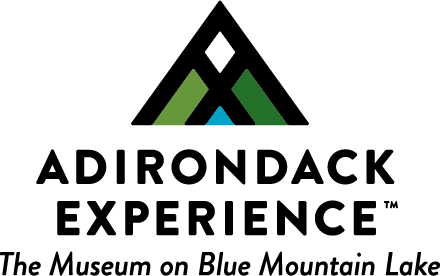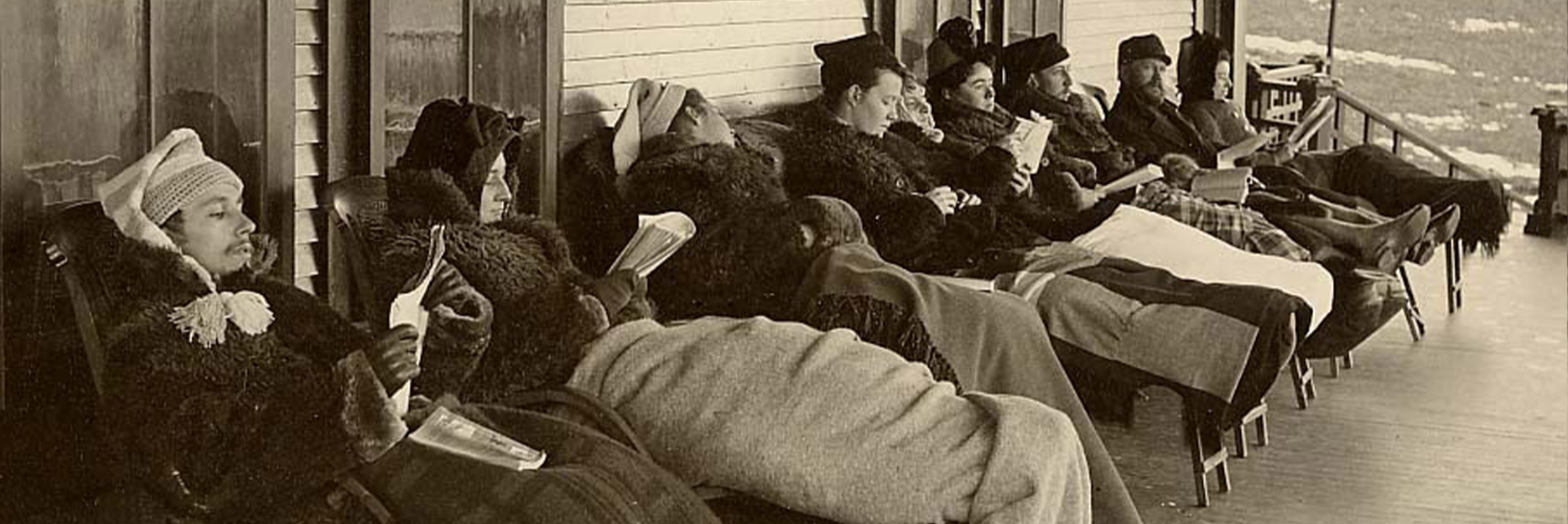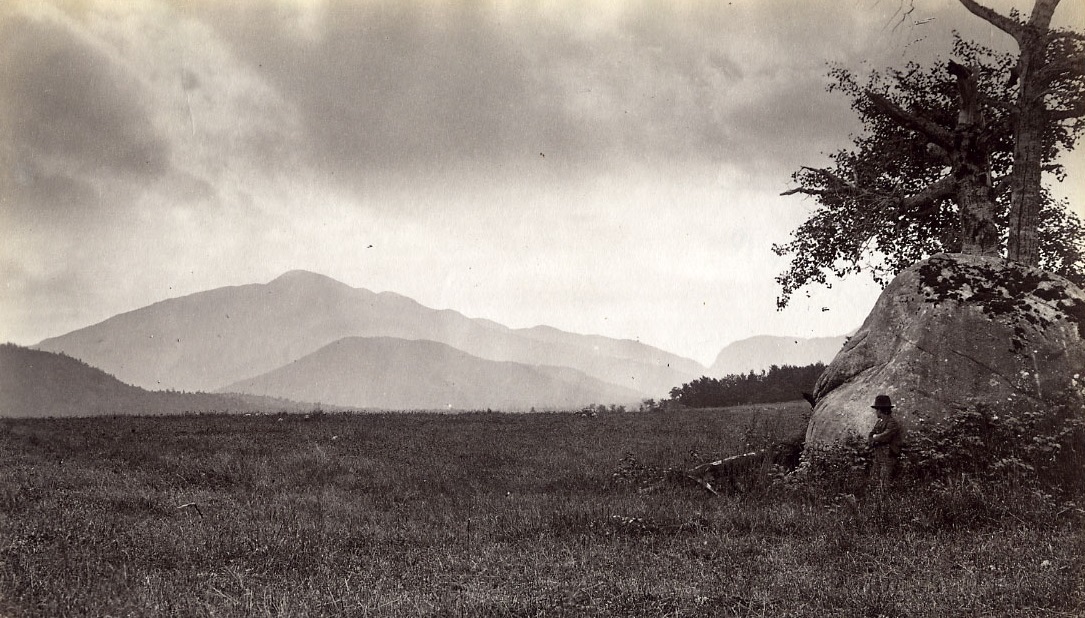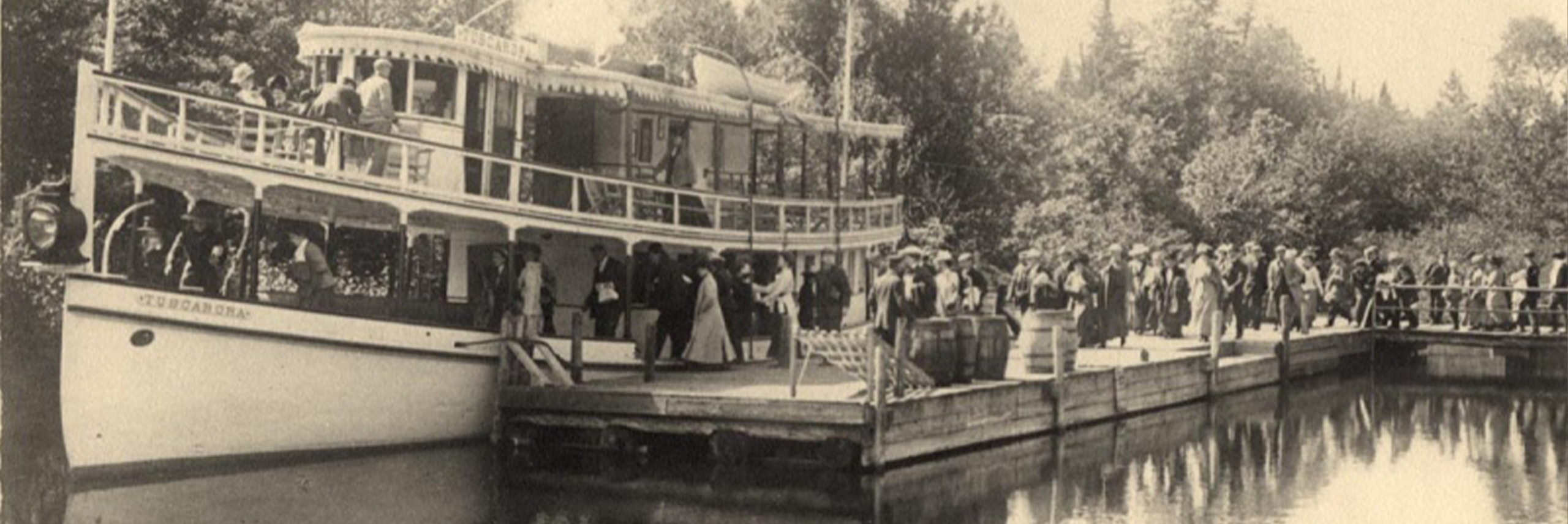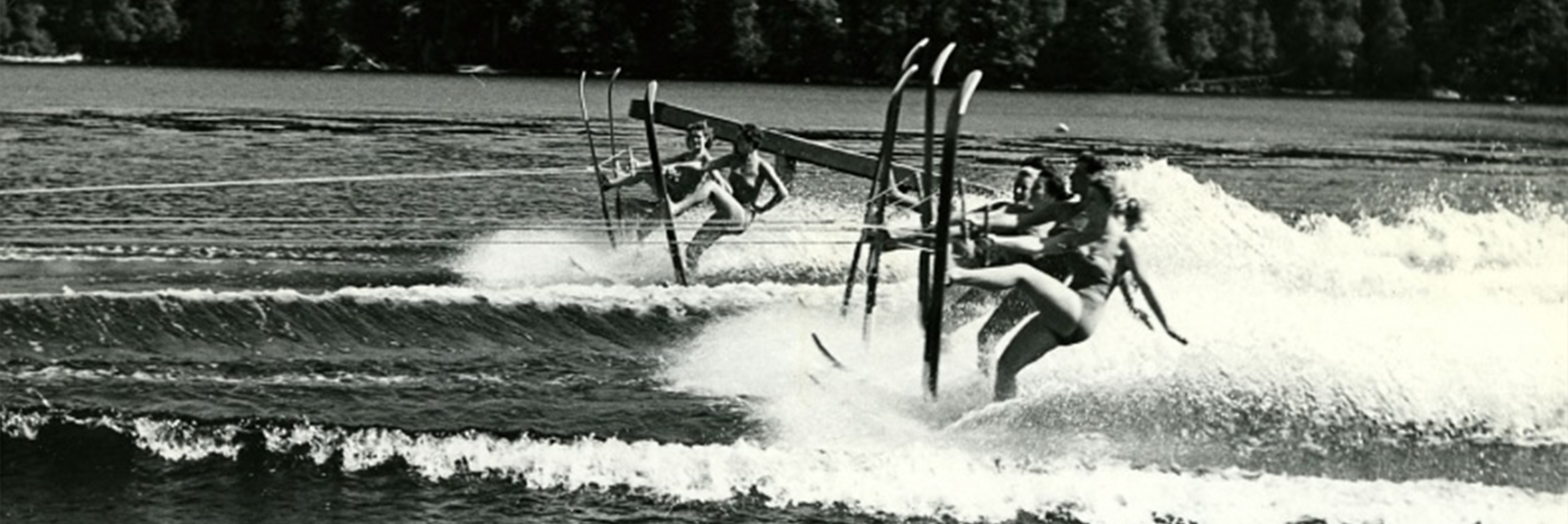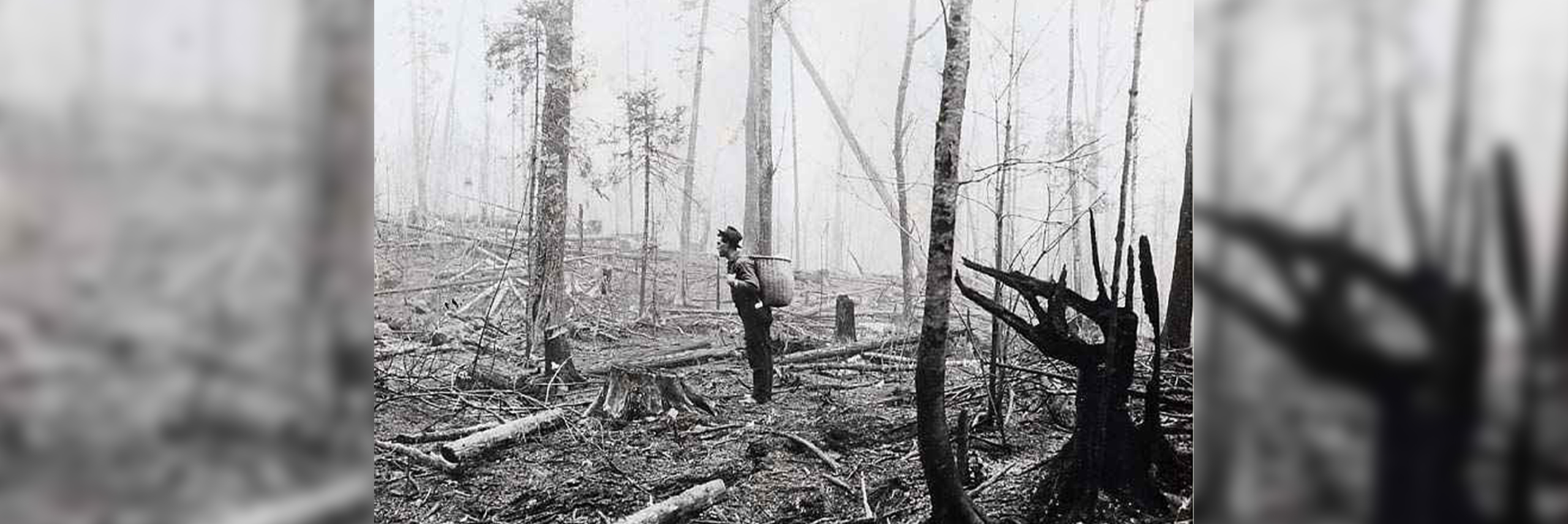New Eight-Part Virtual Program Series Exploring Racial and Environmental Justice to Kick-off on May 31
Hosted by the Adirondack Experience, Series to Feature Wide Range of Voices Exploring the History and Contemporary Experiences of Diverse Communities in the Adirondacks
New York, NY—April 26, 2022—The Adirondack Experience (ADKX) announced today that it will present an eight-part virtual program series focused on examining the intersections between racial and environmental justice. Titled Adirondacks for All: Identity & Environmental Justice in the North Country, the series will explore experiences of inequity and oppression in the Adirondacks and the ways in which those realities connect with issues of preservation, pollution, and access to land, water, and nature more broadly. Adirondacks for All is being developed in partnership with several local organizations, including the Adirondack Diversity Initiative, The Wild Center, and The Nature Conservancy in the Adirondacks, and is supported in part by a $50,000 grant from the Institute of Museum and Library Services. To oversee the development of the program, ADKX has also hired Erik Reardon, a professor and scholar whose work has focused in particular on environmental history and Native American histories.
The series will kick off on May 31, at 7:00 p.m., with a conversation between Curt Stager, a scientist, educator, and author whose research deals with climate change and ecological histories of lakes and landscapes; Dave Fadden (Akwesasne Mohawk), an artist, storyteller, and writer from Onchiota; and Tim Messner, a professor of archeology at SUNY Potsdam. Titled Deep History and Belonging in the Adirondacks, the talk will explore the human history of the Adirondacks and consider the ways in which recent archeological discoveries have pushed the boundaries of scientific and historical knowledge and helped to shape larger discussions of belonging, ownership, stewardship, and the concept of wilderness itself. This will be followed on June 14 with a program featuring Aaron Mair, a 30-year wilderness expert, environmental justice pioneer, and advisor to the White House’s Commission for Environmental Quality for both the Clinton and Obama administrations. This program will focus on the history of the Black Suffrage Settlement movement and its relationship to ongoing conservation efforts in the Hudson Valley.
A full slate of series programs will be announced in the coming weeks, with additional information and updates available on the events page of the ADKX website at www.adkx.org. The events are free to the public but require online pre-registration. Once visitors are registered, they will receive all necessary information to access the virtual programs.
The Adirondacks, established in 1892, have long been celebrated as one of the nation’s signature conservation achievements. A unique patchwork of residential hamlets and forest preserve, the park’s extensive network of woods, waters, and high peaks have inspired generations of residents and visitors seeking their own “Forever Wild” experience. And yet, beneath the surface, and inside the park’s blue line, legacies of dispossession, systemic racism, and inequality contribute to the unfortunate sense that the Adirondacks belong to some, but not others. At the same time, the challenges of climate change and environmental destruction have increased the urgency to maintain and enhance the region’s historic commitments to conservation and preservation. These converging realities have made it essential to confront the systems and structures that have prevented the Adirondacks from living up to the democratic ideal on which they were established: for “the free use of all the people for their health and pleasure.”
Adirondacks for All is core to ADKX’s vision to reexamine and expand the narratives that have shaped common understandings of the Adirondacks and to shed new light on the experiences of diverse communities in the region. Equally, the series considers and challenges the traditional boundaries of environmental justice by making active connections to social and racial justice movements of past and present. Adirondacks for All lays an important foundation for the museum’s ongoing work to bring attention to these issues as well as to establish ongoing partnerships and opportunities for dialogue and solution-building with its community. It follows ADKX’s 2020 virtual program series, The Black Experience in the Adirondacks, which highlighted the systemic racism that Black people face in a region where the residents and visitors are overwhelmingly white. These programs are intended to encourage mutual understanding and to support the development of new approaches and policies that will encourage diversity in tourism and community development in the Adirondacks.
As the Project Director for the series, Reardon has worked with leadership from ADKX and its partner organizations as well as several project advisors to apply an expansive environmental justice lens to the history and present-day realities of the Adirondacks. The group is working to harmonize discussions about diversity, advocacy, policy, preservation, and natural and human history to offer a holistic framework for public engagement. Over the course of the series, speakers will explore critical questions such as:
● Whose stories are being told when we celebrate multi-generational attachment to Adirondack land and water?
● Who, historically, have been the beneficiaries of conservation and preservation in the region?
● How have diverse communities, including those of Indigenous peoples and Black and African American people, found meaning and inspiration from the Adirondacks?
● What are the challenges and solutions to bringing greater diversity and experience to the Adirondacks?
About Erik Reardon
Erik Reardon is an environmental historian specializing in Indigenous and Euro-American relationships with rivers and the historic dimensions of fisheries conservation and dam removal. He received his PhD from the University of Maine and has taught as a Visiting Assistant Professor at Colby College and Bates College. This past July, his book Managing the River Commons: Fishing and New England’s Rural Economy was published by the University of Massachusetts Press as part of their series, Environmental History of the Northeast. He joined ADKX in March 2022 as Project Director to lead the development of Adirondacks for All: Identity & Environmental Justice in the North Country.
About the Upcoming Series Speakers
Curt Stager is a scientist, educator, and author whose research deals with climate change and deep ecological histories of lakes and landscapes around the world. His work has been published in prominent technical journals such as Science as well as periodicals such as National Geographic and the New York Times. He co-hosts Natural Selections, a weekly science program on North Country Public Radio. Stager is the author of four books, most recently, Still Waters: The Secret World of Lakes. He teaches natural sciences and holds an endowed research chair at Paul Smith’s College in upstate New York. In 2013, the Carnegie-Case Foundation named him Science Professor of the Year for New York State.
Dave Fadden (Akwesasne Mohawk), an artist, storyteller, and writer from Onchiota. His subjects range from traditional Haudenosaunee teachings to intimate and inspired portrayals of community members. Fadden was recently invited to reimagine a living wetland exhibit at The Wild Center (Tupper Lake, NY) from a Haudenosaunee perspective. Future ventures include a partnership with the John Brown Farm Historic Site (Lake Placid, NY) and a project with Akwesasne Tourism in which he will serve as lead art consultant and designer for an outdoor community project. His work can be seen at the Six Nations Indian Museum in Onchiota, a family-run facility founded in 1954 by his grandparents. Today, he continues the work to break down stereotypes and advance accurate understandings of Mohawk and Haudenosaunee culture.
Tim Messner is an Associate Professor in Archeology at the State University of New York, Potsdam. He moved to Kanienkehaka (Mohawk) territory in 2012, and soon became deeply interested in the Indigenous history of the Adirondack uplands. He has spent the last decade exploring the Adirondacks for recreational and scholarly pursuits. Messner earned a doctorate from Temple University in 2008 and did his postdoctoral work at the Smithsonian. Prior to joining SUNY Potsdam, he was an Adjunct Professor at the University of Wisconsin-Stevens Point. He is a father, a wanna-be craftsman, and low-level food producer.
Aaron Mair is a 30-year wilderness expert, environmental justice pioneer, and advisor to the White House’s Commission for Environmental Quality for both the Clinton and Obama administrations. Mair was the first African American president of the Sierra Club and is well-known for his work in environmental justice.
About the Adirondack Experience
Adirondack Experience, The Museum on Blue Mountain Lake (ADKX), accredited by the American Alliance of Museums, shares the history and culture of the Adirondack region through interactive exhibits, hands-on activities, and culturally rich collections in more than 20 historic and contemporary buildings on a 121- acre campus in the heart of the Adirondacks. The
museum is supported in part with donations from the general public, with some general operating support made possible by the New York State Council on the Arts with the support of Governor Kathy Hochul and the New York State Legislature. For additional information, call 518-352-7311 or visit www.theADKX.org.
About Adirondack Diversity Initiative (ADI)
The Adirondack Diversity Initiative (ADI) exists at the intersection of environmental and transformational justice, working to make the Adirondacks a more welcoming and inclusive place for both residents and visitors, while ensuring a vital and sustainable Adirondack Park for future generations of Black, Indegenous, and Other People of Color. Our Justice, Equity, Diversity, and Inclusion (JEDI) work focuses on building culturally consciousness communities, businesses, and organizations by expanding cultural and critical consciousness around issues of systemic racism and structural oppression. We empower communities with the tools and strategies needed to take action, while expanding access to unique Adirondack opportunities for historically marginalized groups.
About The Wild Center
The Wild Center invites visitors to explore new ways that people and nature can thrive in the Adirondacks. Located in Tupper Lake, NY the Center uses science-based experiences, exhibits and programs to open new ways to look into the relationship that people have with nature and to promote environmental best practices. A 54,000-square-foot facility, The Wild Center features outdoor space, live animals, and its popular Wild Walk, an elevated trail across the Adirondack treetops. The Center is currently open Fridays, Saturdays and Sundays from 10 a.m. to 5 p.m. The Wild Center’s Youth Climate Program is a global initiative that convenes, engages and inspires young people to take action in their schools and communities. The youth climate summit model has inspired over 100 summits in 9 countries. To learn more visit www.wildcenter.org
The Nature Conservancy
The Nature Conservancy is a global conservation organization dedicated to conserving the lands and waters on which all life depends. Guided by science, we create innovative, on-the-ground solutions to our world’s toughest challenges so that nature and people can thrive together. We are tackling climate change, conserving lands, waters and oceans at an unprecedented scale, providing food and water sustainably and helping make cities more sustainable. Working in 76 countries and territories: 37 by direct conservation impact and 39 through partners, we use a collaborative approach that engages local communities, governments, the private sector, and other partners. To learn more, visit www.nature.org or follow @nature_press on Twitter.
